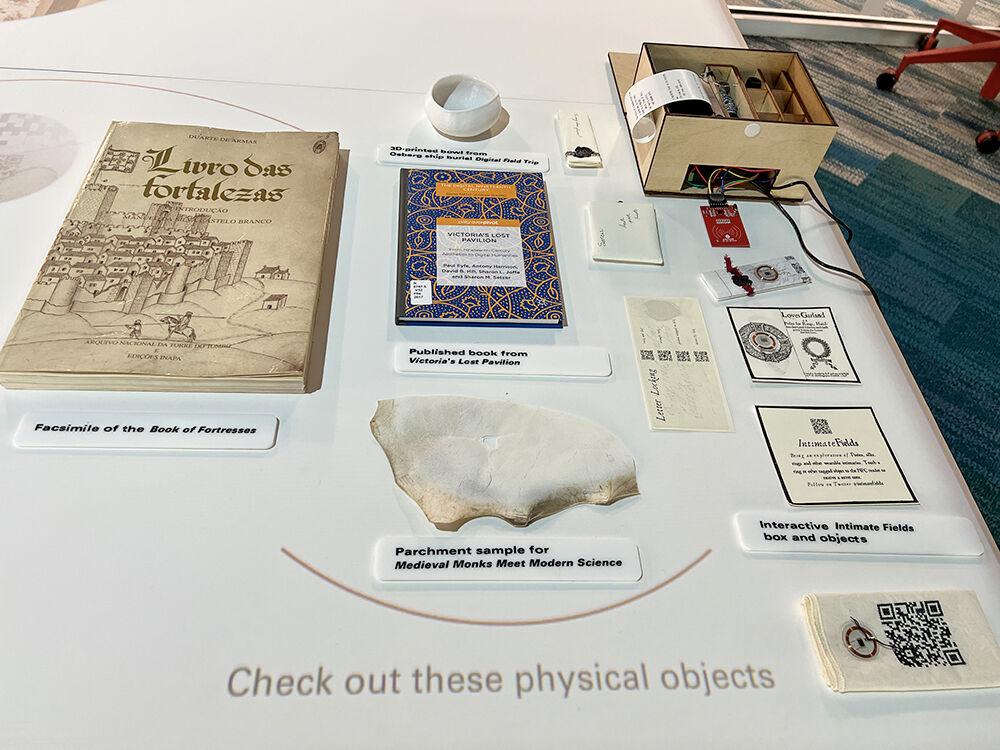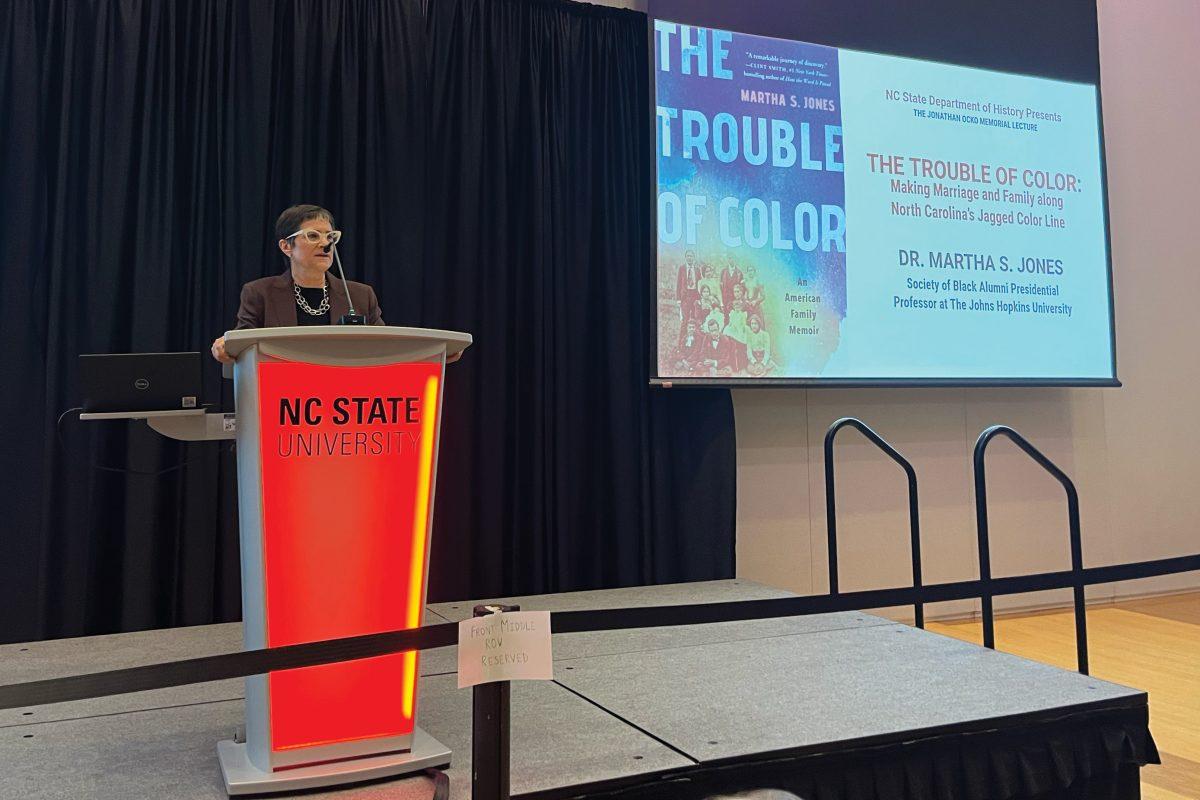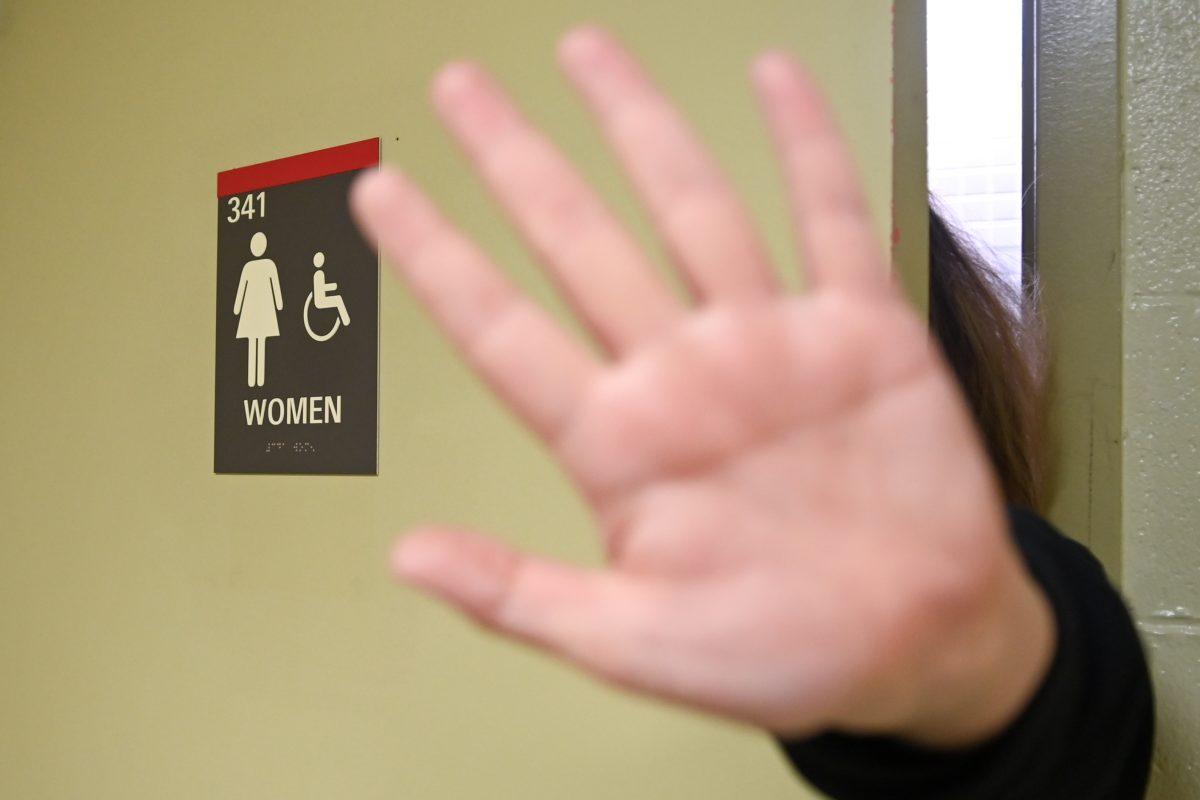Editor’s Note: This article was updated 4/19 for accuracy.
In a collaboration that has been in the works since before the pandemic, NC State University Libraries and the English department teamed up with the Folger Shakespeare Library to hold a virtual seminar focusing on digital humanities. The seminar titled “Out of the Archives, Digital Projects as Early Modern Research” was conducted March 10-12.
According to Margaret Simon, an associate professor in the English department and a facilitator of the event, NC State is a consortium member of the Folger Shakespeare Library. Because of this, NC State gets access to special programming, research seminars and archives. Christopher Crosbie, an associate professor in the English department, serves as the University’s Folger liaison.
Simon said the application to have NC State host a seminar with the Folger was a competitive one, with many other consortium universities applying to host as well.
When deciding what the focus of the seminar would be, Simon said she wanted to highlight the unique strengths and resources NC State has.
“We have a lot of scholars here working in what’s called digital humanities,” Simon said. “So that’s where you’re thinking about how you can bring together literature, data and digital technologies. We have a lot of scholars here that are doing really cool work in that, and so I kind of thought, ‘Well, maybe we should have a seminar that actually focuses on digital humanities projects and thinks about how we can leverage technology to think differently about literature.’”
The seminar consisted of a keynote speaker and various sessions through the weekend. Simon said the keynote speaker, Anupam Basu, an assistant professor of English at Washington University in St. Louis, is doing work directly related to the focus of the seminar.
“Our keynote speaker was Anupam Basu, and he really fits in with that coming together of literature, big data and digital technologies,” Simon said. “He is basically working with the whole corpus of Shakespeare’s work to think through language change in the period and to make these really amazing visualizations. His keynote, which was very publicized by the library and really was a co-production of the [NC State] libraries, the English department and the Folger, was open to the public.”
Taylor Wolford, a special collections librarian at NC State University Libraries, said she wanted to attend the seminar to learn more about how the library can be involved with digital humanities.
“What I was most interested in is how librarians and library spaces can play a role in digital humanities projects,” Wolford said. “I really wanted to learn firsthand from faculty and consortium members what role librarians would play in providing services, instruction or perhaps digital humanities tools for scholars working on projects so that they can engage with scholarly topics in new and surprising ways.”
Wolford said she enjoyed the hands-on activities that seminar participants were able to take part in.
“We did a really fantastic workshop in the seminar where we were tasked with interpreting the output of an early modern recipe from the original text,” Wolford said. “My group had a fantastic time making a live stream cooking show of us recreating an early modern recipe using modern tools that we had on hand in our home. It was a fantastic thought experiment in how we can modernize historical knowledge and historical topics while still conveying the original intent of the creator.”
Julie Mell, an associate professor in the history department, said she went into the seminar with an open mind, ready to learn about an aspect of the humanities she didn’t have much experience in.
“I’m a medieval historian, so I really love the mix of the hypermodern with medieval and the kind of the juxtaposition that that creates,” Mell said. “But this was more just wanting to see how other humanists are thinking about digital sites, digital humanities, and the sort of the practices that we’re all engaging in.”
Simon said she is excited about the future of digital humanities at NC State.
“If you have a whole digitized collection of everything that was printed, between 1400 and 1700, you can ask really different research questions than you can ask when you’re just looking at a single book,” Simon said. “So I think for scholars, it’s very exciting. I think for the general public and for students, having texts that are high quality and that are digitized and having tools to explore them, creates access for people who maybe can’t go to the Folger Shakespeare Library and poke around in the collections that they have. So it can really help folks be able to access those spaces in an interesting way.”
The D.H. Hill Jr. Library is displaying an “Out of the Archives” exhibit in the Innovation Studio curated by Paul Broyles, Kelsey Dufresne and Erin Willett to make some of the artifacts more accessible to the general public. The exhibit is open until May 1.












